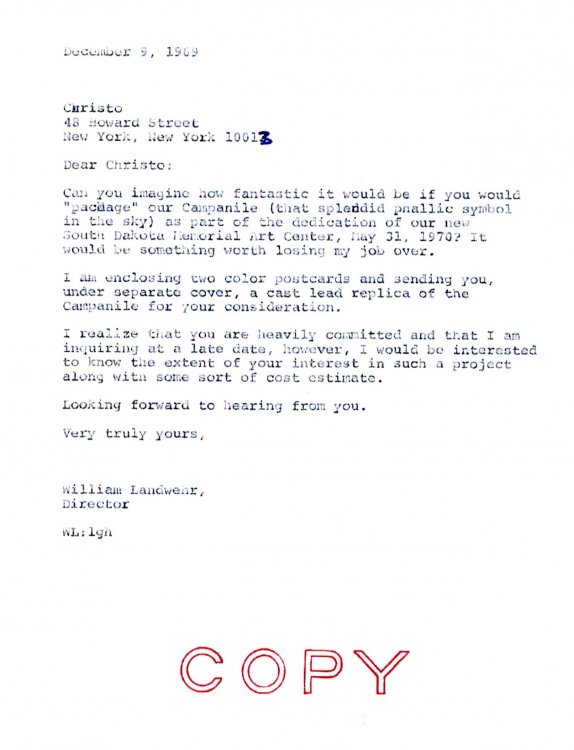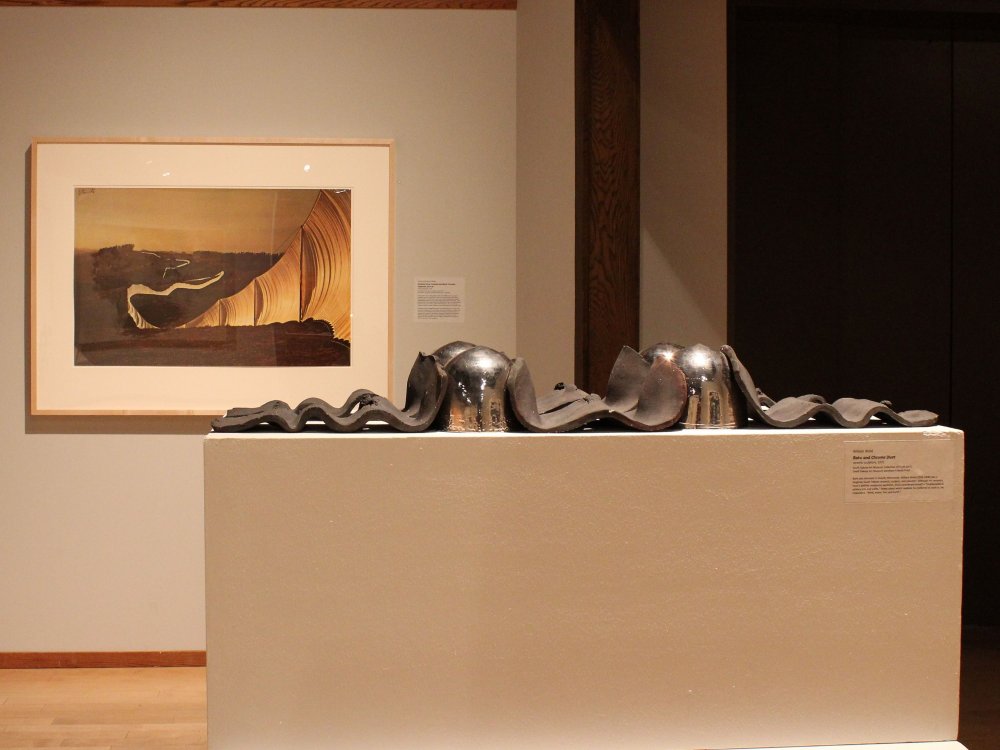Christo Connections
May 31, 2020, marked not only the 50th anniversary of the South Dakota Art Museum but the death at age 84 of the renowned artist known as Christo. Christo (1935-2020) and his wife Jeanne-Claude (1935-2009), known collectively as Christo and Jeanne Claude are famous for their large-scale outdoor artworks using fabric to wrap, surround and drape public spaces including The Gates in New York City's Central Park, The Pont Neuf Wrapped in Paris, the Wrapped Reichstag in Berlin and Running Fence in California.
Ironically perhaps, the South Dakota Art Museum shares several Christo connections including one dating back to the museum's dedication day 50 years earlier on May 31, 1970.
Christo invited to wrap the Coughlin Campanile next to the museum
The art museum's first director, William Landwehr, wrote to Christo in December 1969, requesting a proposal for wrapping the Campanile in conjunction with the museum's opening. You can read Landwehr's letter to Christo below.
In response, Christo sent a proposal including a quote for $7,000 for materials and labor. The quote included, among other requirements: 40,000 sq. ft. of “Pro-Tel” vinyl nylon, 6,000 ft. of rope and labor, and the use of a helicopter for 2 to 3 hours. The project received support from then SDSU President, H.M. Briggs, and the Museum Board of Trustees but was delayed into 1971. After Landwehr left the Museum that same year, enthusiasm for the project waned. By 1972 Christo and Jeanne-Claude were completing increasingly ambitious projects. One can only imagine if the Campanile project had come to fruition!
It is interesting, Landwehr sent two letters to Christo requesting that he sell him the Campanile draping proposal. We're searching archives to see if it survives somewhere.
Lithographs of Christo works in the museum's Cockerline Collection
In 2013 the museum acquired several lithographs of Christo works as part of collector Neil C. Cockerline's donation of his extensive collection of original fine art prints from the 1960s, 1970s and early 1980s, the Cockerline Collection.
The piece Running Fence, Sonoma and Marin Counties, California 1972-76, (shown in the museum's 2018 Ripple Effects exhibit in the slider below) shows one of the pair’s most iconic works. The project was a major undertaking involving 2,222,222 square feet of heavy woven nylon fabric, 2,050 steel poles, 90 miles of steel cable and 13,000 anchors. These materials combined to form a waving line of fabric that snaked through 24.5 miles of grassland in Sonoma and Marin Counties, California, before submerging into the Pacific Ocean.



